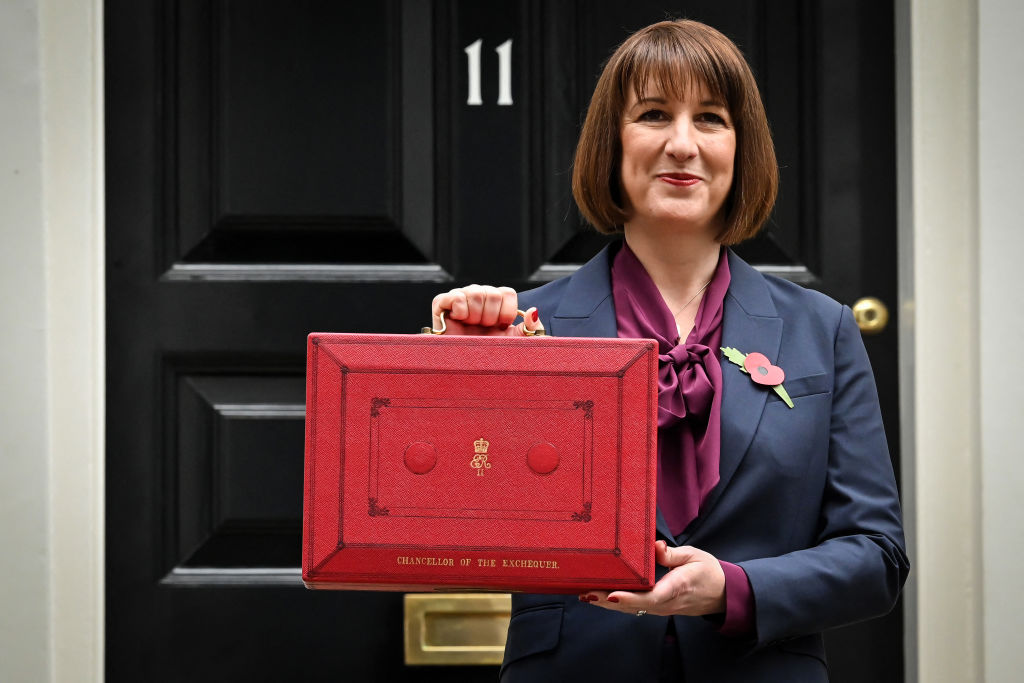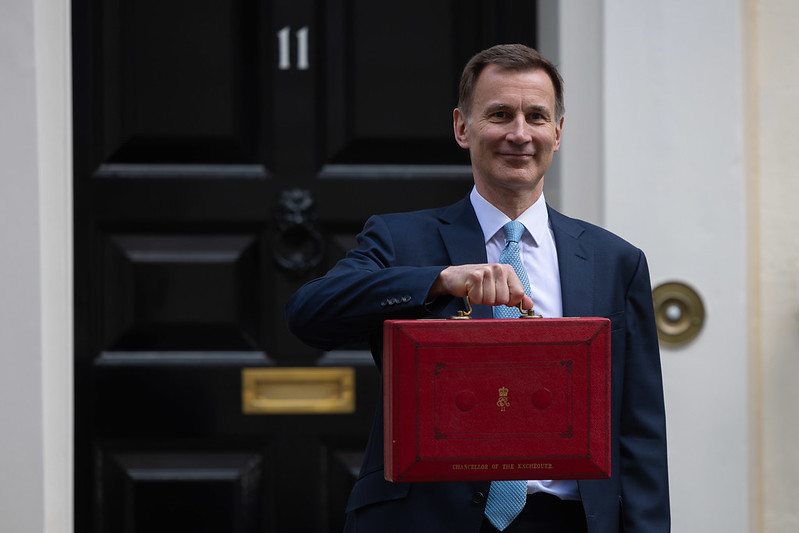'Stay at home' mums: don't lose your NI credits
Thanks to new rules on child benefits, some mothers could miss out on collecting their National Insurance credits. Here's how to make sure you don't.

Get the latest financial news, insights and expert analysis from our award-winning MoneyWeek team, to help you understand what really matters when it comes to your finances.
You are now subscribed
Your newsletter sign-up was successful
Want to add more newsletters?

Twice daily
MoneyWeek
Get the latest financial news, insights and expert analysis from our award-winning MoneyWeek team, to help you understand what really matters when it comes to your finances.

Four times a week
Look After My Bills
Sign up to our free money-saving newsletter, filled with the latest news and expert advice to help you find the best tips and deals for managing your bills. Start saving today!
I wrote a few days ago about the various different ways in which the taxpayer subsidises stay at home mothers mainly via National Insurance credits and state-funded nursery care for the over-threes. But as I wrote it, something occurred to me.
National Insurance credits for non-working mothers of under-12s are very valuable. A working parent on a salary of £25,000 pays well over £2,000 a year in National Insurance, and if you had to buy back the NI years you missed while caring for children, it would cost you not far off £700 a year (£13.50 a week). However, your credits are calculated based on your child benefit claims.
It is the fact that you are claiming child benefit that automatically puts your credits in the system. So what if, thanks to the new regulations regarding child benefit (whereby those in a household in which one party earns more than £60,000 don't get it), you aren't claiming child benefit anymore? Do you still get the credits?
MoneyWeek
Subscribe to MoneyWeek today and get your first six magazine issues absolutely FREE

Sign up to Money Morning
Don't miss the latest investment and personal finances news, market analysis, plus money-saving tips with our free twice-daily newsletter
Don't miss the latest investment and personal finances news, market analysis, plus money-saving tips with our free twice-daily newsletter
I called HMRC to clarify. The answer is that you do. But that it isn't always automatic. As far as I understand it from HMRC, if you have previously been receiving child benefit but have now said you won't take it, you are in the system anyway (thanks to your original claim form) and so will get your credits. The boring admin only comes in if you have had a child since the new rules came in, are not eligible and have decided not to claim at all.
In this case, you should go to the HMRC website and fill in a claim form the key bit being Section 4, Question 62 where you tick to decline benefit payments but to protect your state pension. It shouldn't take more than a few minutes but it will make sure that you continue to get your £700-a-year's worth of credits and that if you should go back to work in the future, you won't have to put in quite as many years as you might have to get the full, new flat-rate pension.
Get the latest financial news, insights and expert analysis from our award-winning MoneyWeek team, to help you understand what really matters when it comes to your finances.

-
 How a ‘great view’ from your home can boost its value by 35%
How a ‘great view’ from your home can boost its value by 35%A house that comes with a picturesque backdrop could add tens of thousands of pounds to its asking price – but how does each region compare?
-
 What is a care fees annuity and how much does it cost?
What is a care fees annuity and how much does it cost?How we will be cared for in our later years – and how much we are willing to pay for it – are conversations best had as early as possible. One option to cover the cost is a care fees annuity. We look at the pros and cons.
-
 The most and least expensive countries to be an expat in 2025
The most and least expensive countries to be an expat in 2025With some Brits fleeing the country to avoid seemingly ever-increasing taxes, we look at the most and least expensive countries to emigrate to.
-
 What has changed with employers’ National Insurance – and how will it impact you?
What has changed with employers’ National Insurance – and how will it impact you?Will you feel the effects of the National Insurance hike, as businesses warn of redundancies, smaller pay rises and higher inflation?
-
 Conservatives pledge to cut National Insurance again – how much could you save?
Conservatives pledge to cut National Insurance again – how much could you save?News A 2p reduction in National Insurance is a key feature of the Tory’s general election manifesto.
-
 Workers set for new national insurance tax cut – how much will you save?
Workers set for new national insurance tax cut – how much will you save?News National insurance tax rates have fallen but frozen allowances may limit the benefits.
-
 Budget 2024: National Insurance cut, a new British ISA, and reform of the child benefit charge - here’s what has been announced
Budget 2024: National Insurance cut, a new British ISA, and reform of the child benefit charge - here’s what has been announcedThe chancellor has announced a host of changes, including cutting National Insurance again, and abolishing some tax reliefs. Here’s how the Budget will affect your finances.
-
 Brace for a year of tax rises
Brace for a year of tax risesThe government is strapped for cash, so prepare for tax rises. But it’s unlikely to be able to squeeze much more out of us.
-
 Topping up state pension to become easier with new online tool
Topping up state pension to become easier with new online toolAnyone looking to buy extra National Insurance contributions and boost their state pension currently has to make multiple phone calls - but a new online tool is on its way.
-
 Gender pensions gap - are women paying a parenthood penalty?
Gender pensions gap - are women paying a parenthood penalty?Trade body warns women face serious obstacles to saving enough for retirement as the gender pensions gap continues. Is raising a family having a detrimental impact on our pension pot?